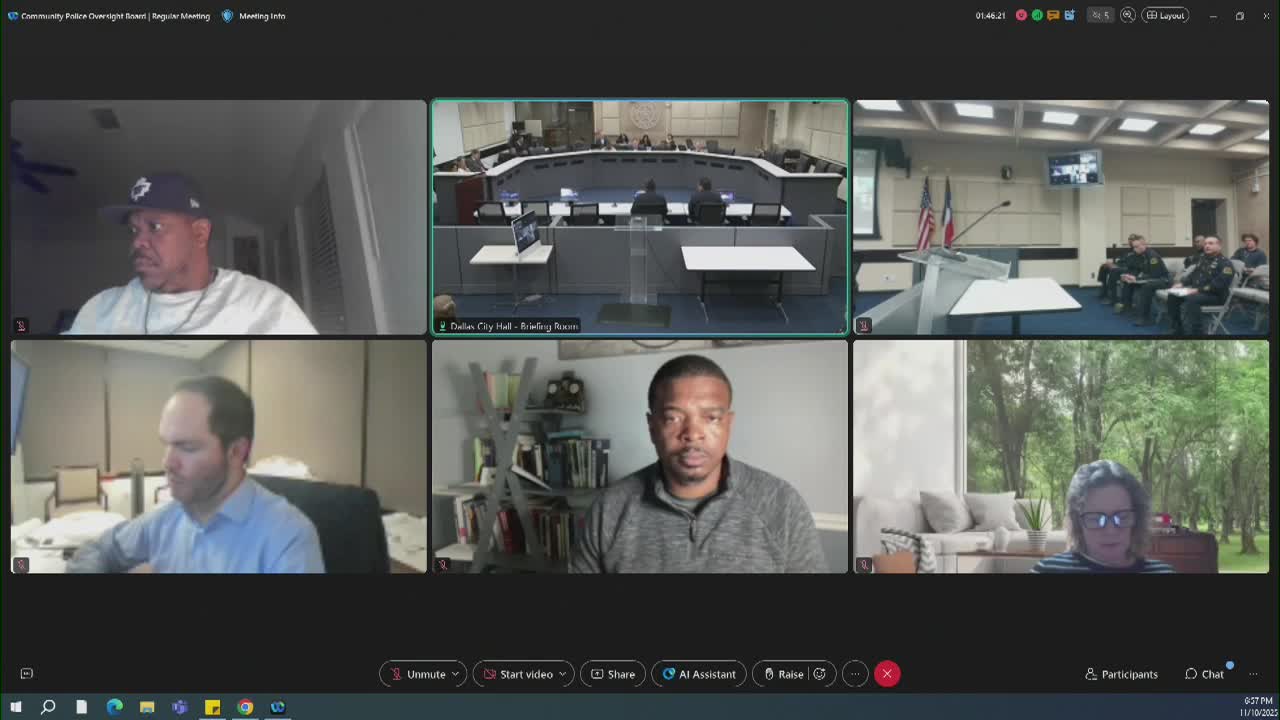DPD tells oversight board private entities cannot access department Flock feeds; property-room retention rules reviewed
Get AI-powered insights, summaries, and transcripts
Subscribe
Summary
DPD leadership told the oversight board that private companies may share their Flock (vehicle-camera) data with Dallas Police but cannot access DPD’s Flock feeds; the department provided counts of fixed Flock cameras by division and said evidence destruction follows retention laws and owner-notification procedures.
Executive Assistant Chief Monique Alex told the Community Police Oversight Board that private companies can share their Flock camera data with Dallas Police, but they may not access DPD’s own Flock camera feeds. Alex provided a division-by-division count of fixed Flock cameras (examples: Central 88; Northeast 111; Southwest 119) and said DPD also has some mobile Flock units for deployment.
On property-room questions, Major Juan Salas said the property manager follows retention laws and detectives’ needs when determining destruction timelines. Before destruction, the property-room sends a notice to a listed owner giving them the opportunity to retrieve items; evidence tied to violent crimes (e.g., murder) is held indefinitely. Salas invited board members to tour IED and the property-room to better understand case intake, evidence handling and retention processes.
Board members asked whether DPD’s non-sharing stance with private entities is contractual, policy-based, or both. Alex said the restriction is internal and contract-based: private entities can provide data to DPD but do not get live access to the department’s feeds.
Why it matters: Surveillance technology and evidence-retention processes were recurring concerns in public comments; the board asked for documentation and transparency. Alex offered to coordinate more detailed presentations from unit commanders (e.g., facial-recognition unit, drones, Flock) at a future meeting.
What’s next: DPD committed to bring unit commanders for deeper briefings and OCPO invited board members to tour IED and the property room. OCPO will also coordinate file-sharing via SharePoint for investigators and board review of evidence files prior to agenda votes.
